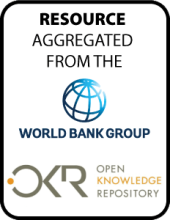Land Library Search
Through our robust search engine, you can search for any item of the over 73,000 highly curated resources in the Land Library.
If you would like to find an overview of what is possible, feel free to peruse the Search Guide.
/ library resources
Showing items 1 through 9 of 18.A legal review of Myanmar's 'Farmland Law' and 'Vacant, Fallow and Virgin Lands Management Law', published by Food Security Working Group’s Land Core Group in November 2012
The Office of the UN High Commissioner for Human Rights in Cambodia (OHCHR) has undertaken the present study to measure the human and socio-economic costs and impacts of eviction and resettlement in Cambodia, and explore solutions based on the Royal Government of Cambodia's domestic laws and poli
Vietnam's rapid and sustained economic growth and poverty reduction in the last two decades benefitted from the policy and legal reforms embodied in the Land Laws of 1987, 1993 and 2003 and subsequent related legal acts. This note outlines reforms related to four main themes.
This report is about implementing
low-cost rural land certification. Prior to 1975,
Ethiopia's land tenure system was complex and
semi-feudal. Tenure was highly insecure, arbitrary evictions
This report is about integrated land
policy reform in context of rapid urbanization in China.
Over the past thirty years, China has undergone a profound
economic and social transformation as it moves towards a
Buying, selling and mortgaging farmland
are still rare in Eastern and Central Europe. Not
surprisingly, given the level of risk in many of these
countries, short-term transactions, especially leasing, are
The recent surge in food and fuel prices
has prompted countries with high dependence on food imports
to try and lock in future food supplies through direct
investment in agricultural production in other countries.
The acquisition of land by foreigners in developing countries has emerged as a key mechanism for foreign direct investment (FDI).
China has undergone a profound economic and social transformation as it moves from a centrally-planned to a market-oriented economy.




